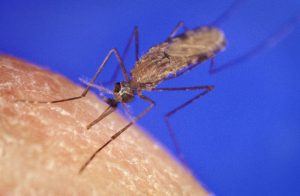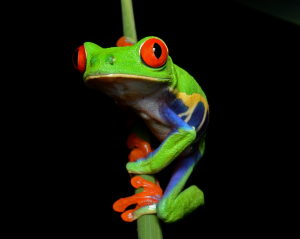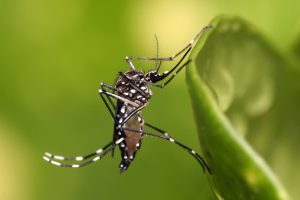We all hate those little pests that only come out in the summer just to bite you and give you the little bump that itches for, what feels like, all eternity. More than 3,500 different species of mosquitoes exist, but only a small percentage of those species actually bite humans. For example, the Anopheles gambiae species carries malaria and the Aedes aegypti species spreads Zika fever. Furthermore, only the female mosquitoes are equipped with the appropriate stylet to pierce your skin.

Anopheles gambiae sucking blood
Credit: Wikipedia
So that begs the question, what would happen if we killed all the mosquitoes on Earth?
How It Affects the Food Chain
Animals that have mosquitoes as their primary food source, like bats, birds, frogs, fish and dragonflies, would likely have to change up their diet. This could potentially lead to their predators changing up their diet in some form as well, since their mosquito-loving prey would be hunting in other areas. So there would be some ecological impact.

Red-eyed tree frog
Credit: Wikipedia
However, it likely wouldn’t be all that detrimental to the food chain. Eventually other insects/animals would fill the void in the food chain left by mosquitoes and possibly be less annoying to humans and other animals.
How Would we benefit?
Hundreds of thousands of people would be saved. Malaria is a disease that still runs rampant in Africa. 95% of all cases and 96% of all deaths originated in the region, with children under the age of 5 making up 80% of the deaths in Africa. So eliminating the mosquitoes would increase the quality of life in many areas around the world and save a countless number of lives each year.
So why don’t we just do it?
Simply eradicating an insect species that lives all across the globe just isn’t feasible. Locating and killing every single mosquito is just not possible. However, it has been tested on smaller scales.

Aedes aegypti on a leaf
Credit: Wikipedia
Scientists have genetically modified some male Aedes aegypti. The male carries a gene to stop their offspring from developing properly resulting in death before being able to reproduce. This has proven to be successful. However, it is still not feasible for total removal of mosquitoes across the globe since it would require genetically modifying millions of mosquitoes.
-Darryl Ma
